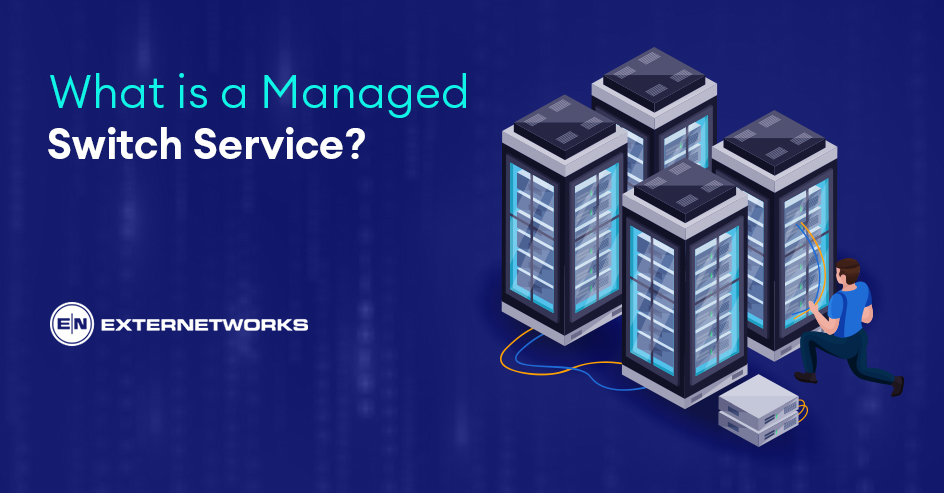What are managed switch services ?
Managed switch services refer to the outsourcing of the management, configuration, monitoring, and maintenance of network switches to a third-party provider. Network switches are essential components within computer networking that facilitate the efficient and secure communication between devices in a local area network (LAN). Managed switch services offer businesses and organizations the advantage of offloading the complexities of switch management to experts, allowing them to focus on their core operations.
Key Features and Benefits of Managed Switch Services:
- Configuration and Deployment: Managed switch service providers assist in configuring and deploying network switches according to the specific needs of the organization. This includes setting up VLANs (Virtual Local Area Networks), Quality of Service (QoS) settings, security policies, and more. Proper configuration ensures optimized network performance and security.
- 24/7 Monitoring: Managed switch services involve continuous monitoring of network traffic, performance metrics, and potential security threats. Promptly detect any anomalies or issues, enabling them to take proactive measures to prevent downtime or breaches
- Performance Optimization: Professionals in managed switch services have expertise in optimizing network performance. They ensure that switches are functioning efficiently, preventing congestion, bottlenecks, and other performance-related problems.
- Security Implementation: Security is a critical aspect of network management. Managed switch service providers implement security measures such as access control lists (ACLs), port security, and intrusion detection systems to safeguard the network from unauthorized access and cyber threats.
- Troubleshooting and Issue Resolution: When network issues arise, managed switch service providers have the expertise to diagnose and resolve problems quickly. This minimizes downtime and disruptions to business operations.
- Firmware and Software Updates: Network switches require regular firmware and software updates to address vulnerabilities and ensure compatibility with evolving technologies. It handle these updates to keep the network infrastructure secure and up-to-date.
- Scalability and Flexibility: As businesses grow or change, their networking requirements may evolve. Managed switch services offer scalability and flexibility, allowing organizations to adapt their network infrastructure without the need for extensive in-house expertise.
- Resource Savings: Outsourcing switch management reduces the need for in-house network specialists, which can be cost-effective. It also frees up internal IT teams to focus on strategic initiatives rather than routine maintenance tasks.
- Expertise: Managed switch service providers have specialized knowledge and experience in networking technologies. They stay current with industry best practices, trends, and emerging technologies, ensuring that the network remains robust and future-proof.
- Customization: It can be tailored to the organization’s specific requirements. Whether it’s a small business or a large enterprise, the services can be customized to address unique networking challenges.
- Disaster Recovery and Backup: Managed switch services often include disaster recovery plans and backup strategies. This ensures quick network restoration during hardware failures, data loss, or emergencies, minimizing downtime and data loss..
- Compliance and Reporting: For organizations in regulated industries, it can assist in maintaining compliance with industry standards and regulations. They provide reporting and documentation that can be crucial for audits and assessments.
In conclusion, managed switch services provide organizations with a comprehensive solution for the management, monitoring, and optimization of network switches.
By delegating these tasks to skilled professionals, businesses ensure network reliability, security, and performance, while concentrating on core objectives. This approach offers numerous benefits, including cost savings, access to expertise, scalability, and enhanced network security.

Post Comment